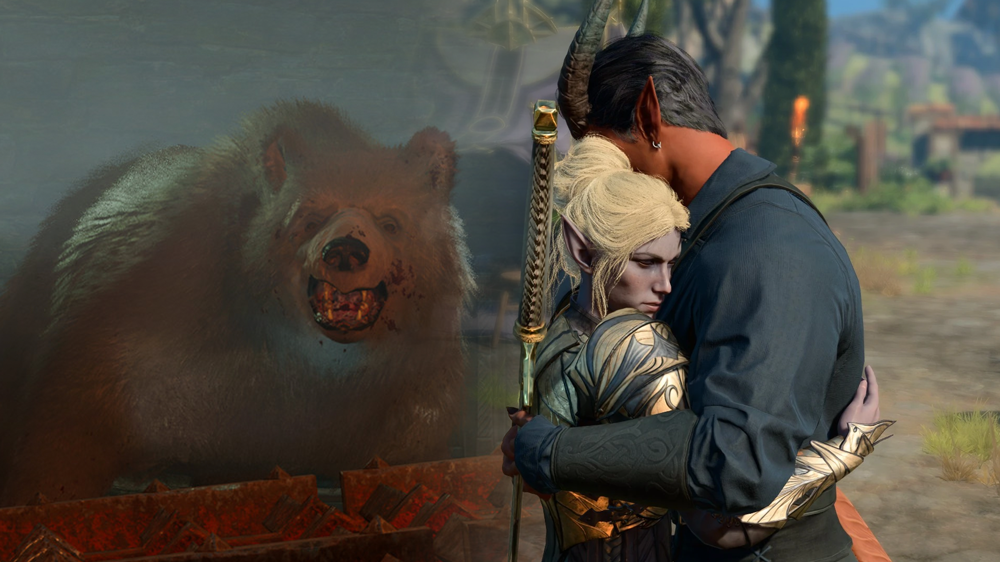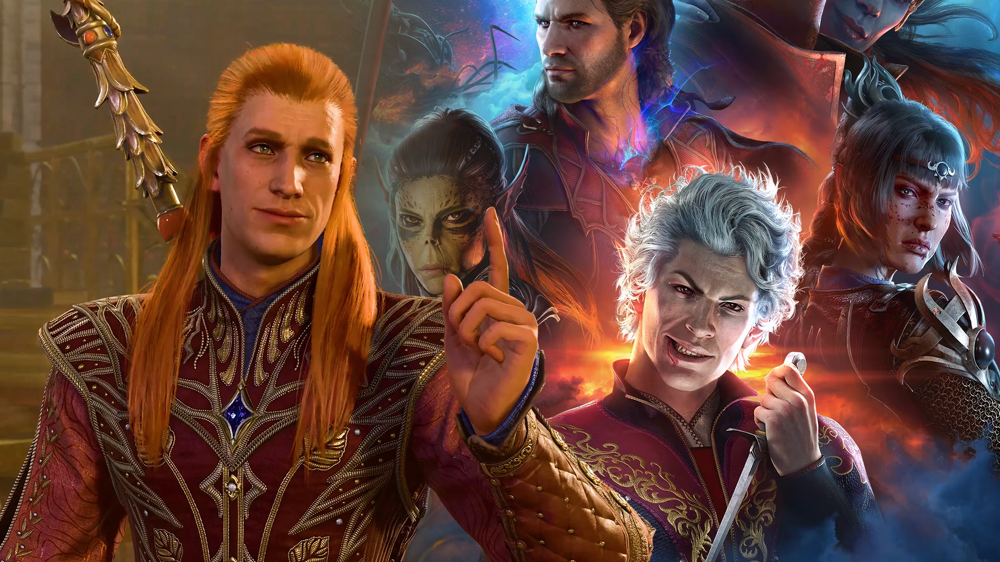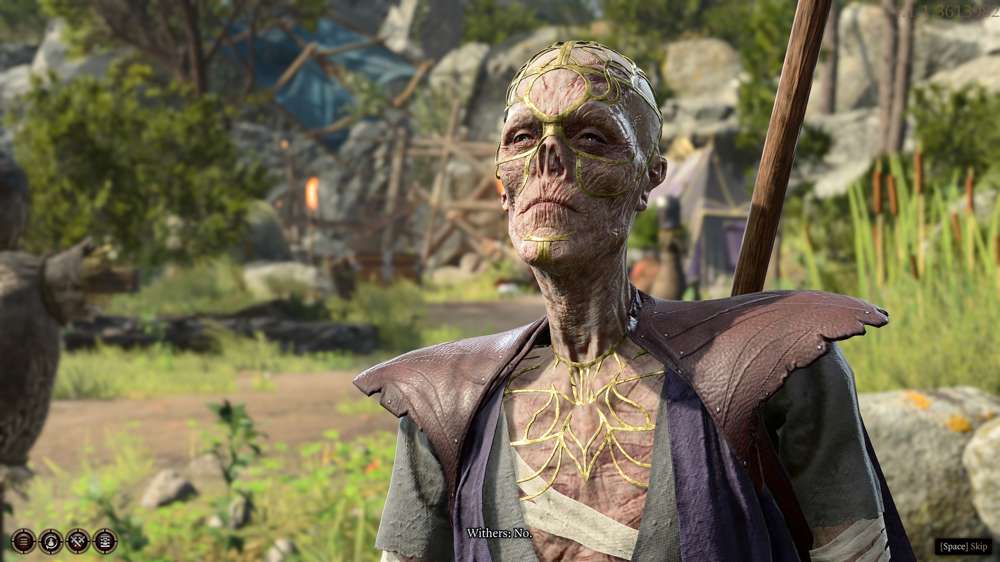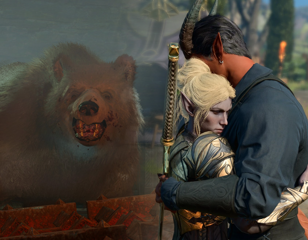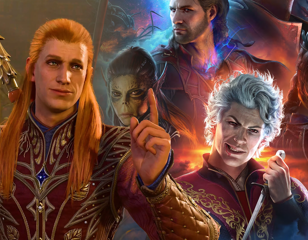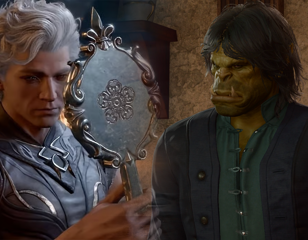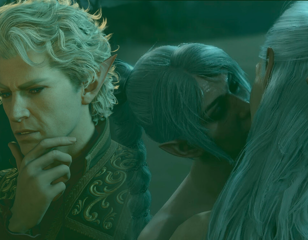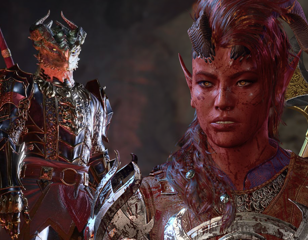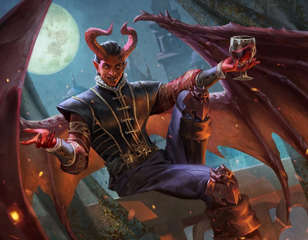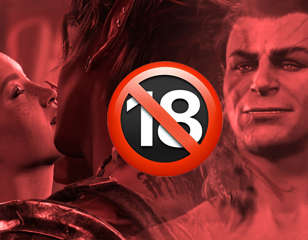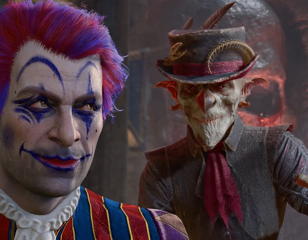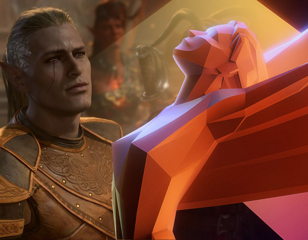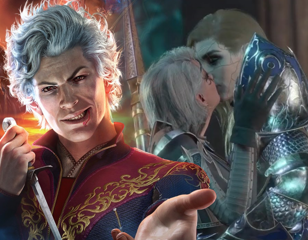My issue with endings, and how Baldur's Gate 3 helped me tackle it
RPGs love to give players different endings depending on their choices, but for folks like me, the need to get the best possible ending can be damaging.

Dave McAdam
30th Dec 2023 14:30
Images via Larian Studios
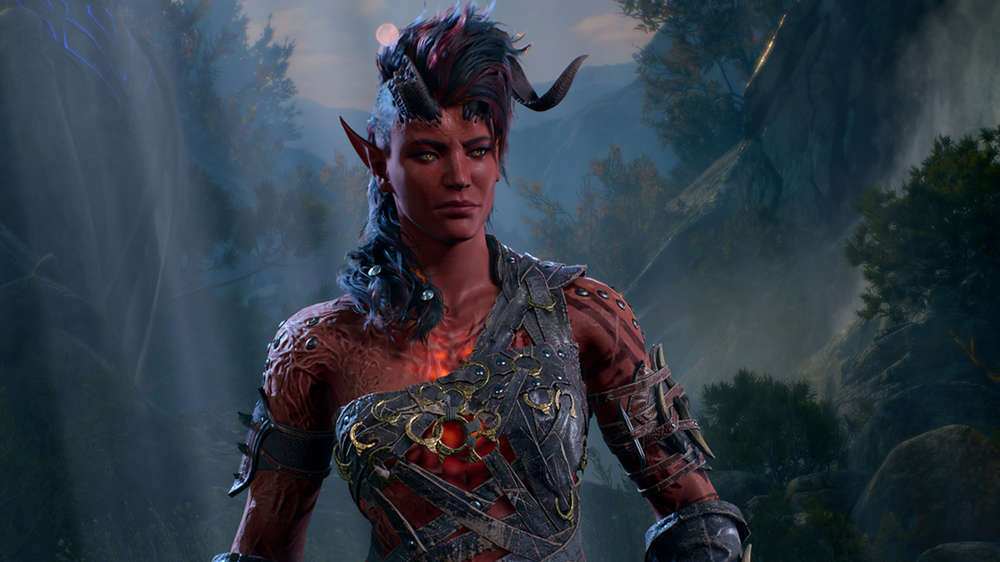
I have a very annoying habit that crops up when I play role-playing games. Specifically, RPGs that give you several possible endings to the story. In an ideal world, I'd play an RPG in the way that feels most natural to me, and accept the ending that I get as a result of my actions. That makes sense, and seems like the most satisfying approach. But do I ever do that?
The words "good" and "bad" inevitably come up when a game has more than one ending. We can't help but frame endings in this way, we have to put them in the same neat little boxes every time. I am just as guilty of this as anyone, particularly because I cannot stop myself from striving for the "best ending", to the point that I may even spoil the game for myself.
I don't like that I do this, so I have been trying to stop. That said, too often games present me with a difficult decision, and in a panic I flee to the search bar to find out what the consequences will be before I make my choice. I've done it as recently as during Phantom Liberty - the fact that I technically finished Cyberpunk 2077 three years ago was more than enough justification to spoil the hell out of the expansion for myself.
SPOILER WARNING: We're talking about endings here, so inevitably this article will contain spoilers for Baldur's Gate 3. Please do yourself the biggest favour you'll do this year and go play it before reading on.
Baldur's Gate 3 fixed my bad RPG habit
As I said, I have been trying to do better. Most recently, I challenged myself to play Baldur's Gate 3, a remarkable game but not something I typically have the time/patience to see through and get to the end without spoiling it for myself. I essentially did this on hard mode, because on top of my bad habits, my job is to write guides, of which I wrote many for BG3.
Now, just because I was determined not to read ahead and spoil the game for myself, does not mean my desire to get the best ending for all and sundry was even slightly diminished. Spoiling the game is simply the last resort for this ambition, ideally, I would manage to reach a preferable ending without peaking around corners first. I don't always accomplish this, and that last resort becomes necessary to my anxious mind.
There were many tests to my conviction throughout Baldur's Gate 3. Several times, I would wander down a narrative path to find out where it led, only to find what seemed to be a playthrough-shattering scenario; my ultimate goal was at risk, one of my party members was turning against me, or my character would brush against irreparable damage.
There was the Githyanki Creche where my curiosity nearly turned me against an important ally- until I got a last-second chance to undo my mistake. I led Shadowheart to the conclusion of her personal story, and only narrowly avoided having to kill her myself. I helped Astarion defeat his vampire overlord, and rather than force him to do the right thing, I let him get there on his own.

This is the lesson Baldur's Gate 3 taught me, each time I thought things had gone completely wrong, having a little faith in my companions and in myself was enough to right the ship. This lesson was hard to learn in that Githyanki Creche, but I tentatively applied the lesson to further situations and each time was proven correct.
It must have been a difficult balance for the developer to write and design this, to allow players to flirt with disaster before whisking them away to relative safety. It's an illusion of annihilation, not something easily pulled over the eyes of the audience. Allow them to get closer, or not close enough, and the stakes evaporate, and the trick is revealed. Like the best tricks, it worked on me every time.
Also like the best tricks, you need to show the danger is real if you want the audience to be fooled. There are plenty of times in Baldur's Gate 3 where things can truly go off the rails. I dove headfirst into a conflict with the demon Raphael, thinking I would emerge smelling of roses. It was pure luck that my party made it out of the House of Hope alive. I know full well that my story could have ended there- because it did at least half a dozen times before I got it right.
These things are why Baldur's Gate 3 was so effective for me. The game never lets you forget how much danger you are in, and yet I still threw everything I had into making sure my party of friends got the most complete endings to their individual stories that they could. Still, knowing the potential dangers, I did everything I could to save everyone I could.
That is just the kind of saccharine superhero I tend to play in games that give me the option. I have to do the most good for the most people, regardless of the effort, the cost, or how long it takes. Maybe I'm a people pleaser, or maybe I'm just so non-confrontational that I can't even actively choose to be a bad person in a video game. Whatever the reason, this is the path I default to time and time again.
The Final Trick

Then came the final trick, the last and most devious choice. No matter how much I prepared, how many allies I had, no matter what I did, the game put a nearly impossible choice in front of me. Despite resisting the power for so long, I was forced to become a Mind Flayer. Now, the game didn't force me to do it. No, I forced myself to do it with my incessant need to be "good".
Let me lay this out for you. To defeat the final boss of the game, we need a Mind Flayer. The Emperor, our Mind Flayer companion throughout the game, will abandon us and join the enemy unless we allow him to kill and consume Prince Orpheus, granting him the power to defeat the Netherbrain that threatens all of Faerun.
My conscience would not allow me to partake in Orpheus' killing. Partly out of a skewed sense of justice, largely because I didn't want Lae'zel to be mad at me. So that settled it, I could not side with the Emperor, I had to work with Orpheus. To do so, either Orpheus or myself had to become a Mind Flayer. Again, my conscience refused to let Orpheus make the sacrifice.
I had to do it, even if it meant my player character who I had grown so attached to was gone forever, even if it meant the end of my relationship with Karlach, even if it meant I couldn't get my perfect ending. I cannot tell you how long I poured over this, how much time I spent looking for any loophole that meant I didn't have to become a Mind Flayer and neither did anyone else. This was the only option my conscience would allow, and it stung.

Now, in the end, I loved the ending I got. Don't get me wrong, I love a bit of tragedy and even enjoy watching things go completely wrong sometimes, but only when it isn't my choice. I get too attached to characters, I want to do right by them so badly that I can't intentionally harm them for my own amusement.
This is why I loved the ending I got in BG3, where my newly Mind Flayer-ed avatar charged heroically into the hells of Avernus with her buddy Wyll and her one true love Karlach, to spend the rest of their days slaying demons (I choose to believe this happens to the tune of Rip and Tear from DOOM, but that bit is just for me).
I love this ending because it is perfect in the way that real life is perfect, which is to say it never is. Bad things happened and good people died, but in the end, we are still here and that's about as good as you can ask for. Even if it wasn't the perfect ending where everyone got to live happily ever after, I think this kind of ending is ultimately much more satisfying.
Challenge Yourself

Video games are a hell of a lot of set dressing on top of some mathematical equations. They have a beginning, middle, and end, and they can usually be solved in a neat and tidy way. This is a great thing, an escape from real-life issues that can't be solved, or don't seem to have an end. It is a great way to get a sense of control you might be lacking in the real world.
In some ways, striving for the best ending in a game like Baldur's Gate 3 is a crutch. It's like setting the emotional difficulty of a game to easy mode. I do not at all mean to suggest this is inherently a bad thing. In a similar way to how accessibility options make games playable to those who normally couldn't, having a "good ending" can also make a game playable for those who need it. If you need a good ending, then go and get it. No shame, no judgment, this is a wonderful thing.
If you don't need it, maybe you shouldn't always rely on it, and challenge yourself.
Always striving for the best outcome can be exhausting. I wore myself out trying to wring the best possible ending out of Baldur's Gate 3, and I came up short. It was a lesson I needed reminding of, that desperately trying to make everything right and assuming I could even do that in the first place is a state of mind that will burn me out quicker than Karlach's demon heart ever could.
Games can be an amazing escape from the hardships of reality, but they can also be a great way to experience difficult things in a safe environment. Some games have "good" endings, and some games have "bad" endings, but some games make you the big conquering hero who saves the world and loses important pieces of themselves along the way.
That may not be a good ending, it may just be good enough. Sometimes, we need reminding that being good enough, is good enough.

About The Author
Dave McAdam
Dave is a Senior Guides Writer at GGRecon, after several years of freelancing across the industry. He covers a wide range of games, with particular focus on shooters like Destiny 2, RPGs like Baldur's Gate 3 and Cyberpunk 2077, and fighting games like Street Fighter 6 and Tekken 8.
